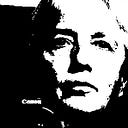My Letter to (my Former) Hometown
Understanding Homelessness Takes Work, Perseverance, Funding
A longtime friend, journalist and community activist, Deena Sherman, recently reached out to connect me to David Cannon, candidate for alderman in my previous hometown, Aurora, IL. David expressed interest in getting involved in homelessness, which afflicts this 2nd-largest Illinois city even worse than when I ran the shelter there (1990–2003). This is my response to David’s initial inquiry.

Thanks, Deena, for connecting us around this important topic of homelessness.
I’m quite interested in advocating for the homeless population. I believe that we should provide Housing First and that homelessness is a policy choice.
I want to discuss your experiences and talk about ideas for how we can change the current system — policies, continuum of care, housing development. Deena was saying that there have always been great ideas, just lack of political will and obstructionists. (David’s email)
Kudos, David, for wanting to get involved in this issue.
I’d like to clarify some confusions and shortcomings about Housing First. I totally agree that homelessness has its origin in policies, and we need to revamp our approach if we’re ever going to stem the tide that seems to be growing each year.
Housing First sounds good, and it has some beneficial aspects. But, in our one-size-fits-all mentality, we want it to work miracles and it doesn’t. My blog post, “Clueless About Homelessness,” addresses many of the “confusions” about this vastly misunderstood issue.
Aside from the fickle federal funding stream and the flimsy political will when it comes to helping the “less fortunate,” a few other considerations need to be raised:
- Because of how HUD defines homelessness, HF eligibility only touches a small percentage of those experiencing homelessness, overlooking literally millions of vulnerable families and youth, and adults, “not homeless enough” to meet HUD’s definition of homeless. Of course, this increases the likelihood that many will become more homeless, alas, with little chance of getting sparse resources. And HF eats up what few resources the Feds allocate.
- Those who disagree with me on the HF issue say we wouldn’t be able to meet the need if HUD aligned its definition to the Dept. of Education McKinney-Vento definition (that originated in Illinois thanks to a small band of us). I say — Congress needs to know HUD’s definition drastically understates their numbers. (The Fox Valley has some excellent Congresspersons — Reps. Foster, Casten, and Underwood — with the ability to change things for the better!)
- If we can’t stop the flow (see above), we will never get ahead of the problem. Congress, because of HUD’s limited definition, has no idea of how humongous homelessness is. Even if just a small percentage of those now “not homeless enough” become homeless, they will overwhelm our inadequate system. Most of the Covid-era programs to prevent homelessness are ending. Homelessness is increasing. No surprise.

- Our homelessness response system has never been so frayed. That’s not a good thing for anyone. Covid rattled what was a flimsy structure, shredding shelter staff, social service agencies, and others vital to helping people get back on their feet. New personnel come in and often lack guidance, supervision, and invaluable street smarts.
- The success of any intervention is relationships. I recently listened to a former street outreach worker describe her efforts to build relationships with those she was trying to get into/keep in HF units. Daunting! But essential. She did an assertive one-on-one approach, meeting each person where they were and helping them as they needed. Few organizations have the staffing levels and know-how to do this. Without relationships, things will crumble. Then, the issue of landlords (I hate that term!) and racism.
- HF has 2 components, one designed as permanent for those most vulnerable and incapable of independent living, one responding quickly, “rapid rehousing,” which is time limited. Inevitably, a good number of those getting that temporary assistance will lose it, and if they’re not equipped to be independent — for any number of reasons — they will falter and recycle, assuming a program exists to continue helping them.
- My recent speaking engagement in Dubuque, IL offered me the opportunity to listen to a dozen adults experiencing homelessness. They stressed the need for COMMUNITY and COMPASSION. Little did we know back in 1996 that the municipally sanctioned Tent City I established at Hesed House back in 1990 would become the unsanctioned fallback response to homelessness. (Below — a spoof newspaper we created to raise awareness of the issue way back then.)

Bottom Line
Communities need to develop flexible approaches to homelessness solutions. Just as housed people have different housing options, the same needs to be developed for unhoused individuals and families. Best practices exist. These need to be explored and implemented by locals, hopefully with adequate funding from feds, state, and local sources.
Here are a few good articles:
- https://homelessness.ucsf.edu/blog/housing-first-not-housing-only
- http://nationalhomeless.org/publication/view/homelessness-and-functional-zero/
- https://www.homelesshub.ca/blog/what-are-limitations-housing-first
And My Scathingly Brilliant Chart

I’ll let you devour this heap of my wisdom. I’ve got a lot on my plate right now, but if you’d like to talk, we can find time. Best to you in your efforts to serve your community.
Diane
p.s. My latest book, Dismazed and Driven — My Look at Family Homelessness in America, will offer further insights into the mostly invisible aspects of homelessness that need to be considered.
